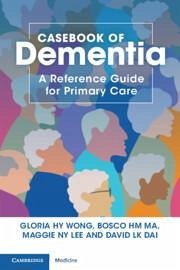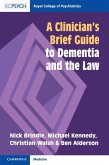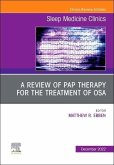Gloria HY Wong (The University of Hong Kong), Bosco HM Ma (Hong Kong Alzheimer's Disease Association), Maggie NY Lee (Hong Kong Alzheimer's Disease Association)
Casebook of Dementia
Gloria HY Wong (The University of Hong Kong), Bosco HM Ma (Hong Kong Alzheimer's Disease Association), Maggie NY Lee (Hong Kong Alzheimer's Disease Association)
Casebook of Dementia
- Broschiertes Buch
- Merkliste
- Auf die Merkliste
- Bewerten Bewerten
- Teilen
- Produkt teilen
- Produkterinnerung
- Produkterinnerung
This practical guide provides 99 case examples of typical and atypical cases of Alzheimer's disease and other dementias, along with useful tools for early identification and post-diagnostic support. Emphasising a collaborative approach between medical and social care, this is a vital resource for those on the frontline in primary care.
Andere Kunden interessierten sich auch für
![A Clinician's Brief Guide to Dementia and the Law A Clinician's Brief Guide to Dementia and the Law]() Nick Brindle (Leeds and York Partnership NHS Foundation Trust)A Clinician's Brief Guide to Dementia and the Law32,99 €
Nick Brindle (Leeds and York Partnership NHS Foundation Trust)A Clinician's Brief Guide to Dementia and the Law32,99 €![Pocket Guide to Oncologic Emergencies Pocket Guide to Oncologic Emergencies]() Monica Kathleen Wattana (MD Anderson Cancer Ce University of TexasPocket Guide to Oncologic Emergencies45,99 €
Monica Kathleen Wattana (MD Anderson Cancer Ce University of TexasPocket Guide to Oncologic Emergencies45,99 €![Good Energy Good Energy]() Dr. Casey MeansGood Energy14,99 €
Dr. Casey MeansGood Energy14,99 €![What You Really Want to Know about Working with Dementia What You Really Want to Know about Working with Dementia]() Karen Harrison DeningWhat You Really Want to Know about Working with Dementia27,99 €
Karen Harrison DeningWhat You Really Want to Know about Working with Dementia27,99 €![A Review of Pap Therapy for the Treatment of Osa, an Issue of Sleep Medicine Clinics A Review of Pap Therapy for the Treatment of Osa, an Issue of Sleep Medicine Clinics]() A Review of Pap Therapy for the Treatment of Osa, an Issue of Sleep Medicine Clinics68,99 €
A Review of Pap Therapy for the Treatment of Osa, an Issue of Sleep Medicine Clinics68,99 €![Diagnosing Skin Disease in Skin of Color, an Issue of Dermatologic Clinics Diagnosing Skin Disease in Skin of Color, an Issue of Dermatologic Clinics]() Diagnosing Skin Disease in Skin of Color, an Issue of Dermatologic Clinics106,99 €
Diagnosing Skin Disease in Skin of Color, an Issue of Dermatologic Clinics106,99 €![Diversity, Equity, and Inclusion in Dermatology, an Issue of Dermatologic Clinics Diversity, Equity, and Inclusion in Dermatology, an Issue of Dermatologic Clinics]() Diversity, Equity, and Inclusion in Dermatology, an Issue of Dermatologic Clinics106,99 €
Diversity, Equity, and Inclusion in Dermatology, an Issue of Dermatologic Clinics106,99 €-
-
-
This practical guide provides 99 case examples of typical and atypical cases of Alzheimer's disease and other dementias, along with useful tools for early identification and post-diagnostic support. Emphasising a collaborative approach between medical and social care, this is a vital resource for those on the frontline in primary care.
Produktdetails
- Produktdetails
- Verlag: Cambridge University Press
- Seitenzahl: 268
- Erscheinungstermin: 30. Mai 2024
- Englisch
- Abmessung: 234mm x 156mm x 14mm
- Gewicht: 412g
- ISBN-13: 9781108984492
- ISBN-10: 1108984495
- Artikelnr.: 69834815
- Herstellerkennzeichnung
- Libri GmbH
- Europaallee 1
- 36244 Bad Hersfeld
- gpsr@libri.de
- Verlag: Cambridge University Press
- Seitenzahl: 268
- Erscheinungstermin: 30. Mai 2024
- Englisch
- Abmessung: 234mm x 156mm x 14mm
- Gewicht: 412g
- ISBN-13: 9781108984492
- ISBN-10: 1108984495
- Artikelnr.: 69834815
- Herstellerkennzeichnung
- Libri GmbH
- Europaallee 1
- 36244 Bad Hersfeld
- gpsr@libri.de
Gloria H. Y. Wong is an Associate Professor in the Department of Social Work and Social Administration as well as Programme Director of the Master of Social Sciences (Mental Health) programme at The University of Hong Kong. She is the Director of Training, Cognitive Stimulation Therapy - Hong Kong. She applies her knowledge in psychology and psychiatry to improve services and societal response to population mental health needs.
Foreword
Preface
1. Background: primary care in dementia
1.1 Concepts and practices of task-shifting & task-sharing in dementia care
1.2 Collaborative care between primary care physicians and specialists: suggested model
1.3 Overview on dementia: workup, diagnosis, differential diagnoses, and management
1.4 Lessons learned from 15 years of early intervention service
1.5 Integrated health and social care: rationales and evidence
2. Typical Alzheimer's disease
2.1 Cases illustrative of pathognomonic features
2.2 Understanding cognitive, functioning, & clinical assessment findings
2.3 Indications for investigations
2.4 Complaints about behaviours
2.5 Normal ageing, MCI, or mild dementia?
3. Atypical Alzheimer's disease, other dementias, & differential diagnoses
3.1 When imaging & further observation is needed
3.2 'Pseudodementia'
3.3 Alzheimer's or other dementias? When to refer
4. Useful tools and resources in early intervention service
4.1 A sample form to facilitate history taking
4.2 Physical examination and investigation checklist for suspected dementia
4.3 Sample cognitive and functioning report of an early intervention service
4.4 Common symptoms reported by carers and persons with suspected dementia
4.5 Infographic and educational material for explaining dementia diagnosis and management
5. Take home messages and further readings
5.1 Advance care planning
5.2 Carer stress and support
5.3 Disclosing dementia diagnosis
5.4 Issues surrounding management
5.5 Home safety and dementia friendly community
Glossary.
Preface
1. Background: primary care in dementia
1.1 Concepts and practices of task-shifting & task-sharing in dementia care
1.2 Collaborative care between primary care physicians and specialists: suggested model
1.3 Overview on dementia: workup, diagnosis, differential diagnoses, and management
1.4 Lessons learned from 15 years of early intervention service
1.5 Integrated health and social care: rationales and evidence
2. Typical Alzheimer's disease
2.1 Cases illustrative of pathognomonic features
2.2 Understanding cognitive, functioning, & clinical assessment findings
2.3 Indications for investigations
2.4 Complaints about behaviours
2.5 Normal ageing, MCI, or mild dementia?
3. Atypical Alzheimer's disease, other dementias, & differential diagnoses
3.1 When imaging & further observation is needed
3.2 'Pseudodementia'
3.3 Alzheimer's or other dementias? When to refer
4. Useful tools and resources in early intervention service
4.1 A sample form to facilitate history taking
4.2 Physical examination and investigation checklist for suspected dementia
4.3 Sample cognitive and functioning report of an early intervention service
4.4 Common symptoms reported by carers and persons with suspected dementia
4.5 Infographic and educational material for explaining dementia diagnosis and management
5. Take home messages and further readings
5.1 Advance care planning
5.2 Carer stress and support
5.3 Disclosing dementia diagnosis
5.4 Issues surrounding management
5.5 Home safety and dementia friendly community
Glossary.
Foreword
Preface
1. Background: primary care in dementia
1.1 Concepts and practices of task-shifting & task-sharing in dementia care
1.2 Collaborative care between primary care physicians and specialists: suggested model
1.3 Overview on dementia: workup, diagnosis, differential diagnoses, and management
1.4 Lessons learned from 15 years of early intervention service
1.5 Integrated health and social care: rationales and evidence
2. Typical Alzheimer's disease
2.1 Cases illustrative of pathognomonic features
2.2 Understanding cognitive, functioning, & clinical assessment findings
2.3 Indications for investigations
2.4 Complaints about behaviours
2.5 Normal ageing, MCI, or mild dementia?
3. Atypical Alzheimer's disease, other dementias, & differential diagnoses
3.1 When imaging & further observation is needed
3.2 'Pseudodementia'
3.3 Alzheimer's or other dementias? When to refer
4. Useful tools and resources in early intervention service
4.1 A sample form to facilitate history taking
4.2 Physical examination and investigation checklist for suspected dementia
4.3 Sample cognitive and functioning report of an early intervention service
4.4 Common symptoms reported by carers and persons with suspected dementia
4.5 Infographic and educational material for explaining dementia diagnosis and management
5. Take home messages and further readings
5.1 Advance care planning
5.2 Carer stress and support
5.3 Disclosing dementia diagnosis
5.4 Issues surrounding management
5.5 Home safety and dementia friendly community
Glossary.
Preface
1. Background: primary care in dementia
1.1 Concepts and practices of task-shifting & task-sharing in dementia care
1.2 Collaborative care between primary care physicians and specialists: suggested model
1.3 Overview on dementia: workup, diagnosis, differential diagnoses, and management
1.4 Lessons learned from 15 years of early intervention service
1.5 Integrated health and social care: rationales and evidence
2. Typical Alzheimer's disease
2.1 Cases illustrative of pathognomonic features
2.2 Understanding cognitive, functioning, & clinical assessment findings
2.3 Indications for investigations
2.4 Complaints about behaviours
2.5 Normal ageing, MCI, or mild dementia?
3. Atypical Alzheimer's disease, other dementias, & differential diagnoses
3.1 When imaging & further observation is needed
3.2 'Pseudodementia'
3.3 Alzheimer's or other dementias? When to refer
4. Useful tools and resources in early intervention service
4.1 A sample form to facilitate history taking
4.2 Physical examination and investigation checklist for suspected dementia
4.3 Sample cognitive and functioning report of an early intervention service
4.4 Common symptoms reported by carers and persons with suspected dementia
4.5 Infographic and educational material for explaining dementia diagnosis and management
5. Take home messages and further readings
5.1 Advance care planning
5.2 Carer stress and support
5.3 Disclosing dementia diagnosis
5.4 Issues surrounding management
5.5 Home safety and dementia friendly community
Glossary.









